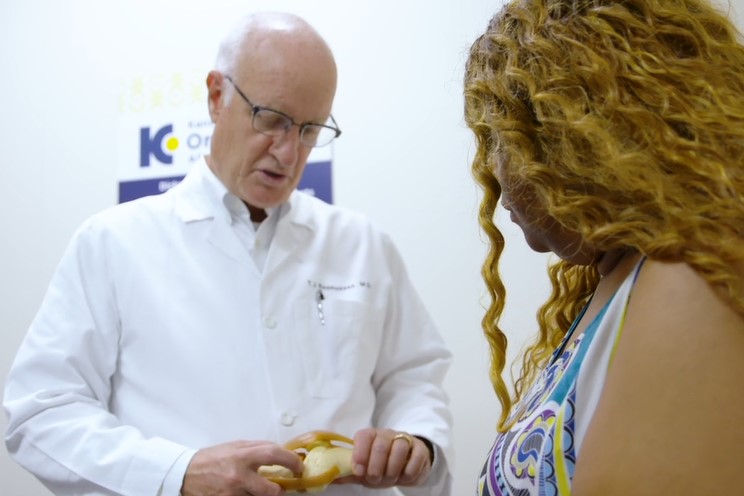As an orthopedic surgeon with a subspecialty in conditions of the shoulder, including shoulder replacement and shoulder pain treatment options, I understand the concerns and questions patients have about reverse total shoulder arthroplasty (rTSA). This shoulder surgery is a newer form of shoulder replacement and is performed following the loss of function of the rotator cuff, either from shoulder arthritis or a severe rotator cuff tear. The procedure involves reversing the mechanics of the shoulder, so the cup becomes the ball and the ball becomes the cup. This allows other muscles to move the shoulder.
In the following video, I answer some common questions from patients considering a reverse total shoulder arthroplasty. I encourage you to view it now for more information on what conditions rTSA treats, who are the ideal patients and what to expect following surgery.
Patients with other shoulder conditions may find the following information helpful:
- Shoulder Treatment: What Are My Options for a Proximal Humerus Fracture (Broken Shoulder)?
- Rotator Cuff Tears: Is Shoulder Surgery the Only Treatment Option?
- What Makes Someone a Good Candidate for Shoulder Replacement Surgery?
- What are the treatment options for shoulder conditions at Dickson-Diveley Orthopaedics?
 About the Author: Lowry Jones, Jr., M.D. is a board-certified orthopedic surgeon specializing in conditions of the shoulder and knee, as well as workers compensation injuries. He also treats disorders of the foot and ankle, hip, back and elbow.
About the Author: Lowry Jones, Jr., M.D. is a board-certified orthopedic surgeon specializing in conditions of the shoulder and knee, as well as workers compensation injuries. He also treats disorders of the foot and ankle, hip, back and elbow.
* * *
The medical information contained in the Dickson-Diveley Orthopaedics website is provided to increase your knowledge and understanding of orthopedic conditions. This information should not be interpreted as recommendations for a specific medical or surgical treatment plan. As each patient may have specific symptoms or associated problems, the treatment regimen for a specific patient may not be the proper treatment for another.
Gaining knowledge and understanding of a particular problem or condition is the first step in any medical treatment plan. Information presented here is intended to be helpful for those individuals experiencing a severe rotator cuff tear, upper extremity disorder, or other related problems. However, this information is not intended to replace the advice of your physician. You are encouraged to consult with your primary care physician to discuss any course of treatment presented or suggested.


